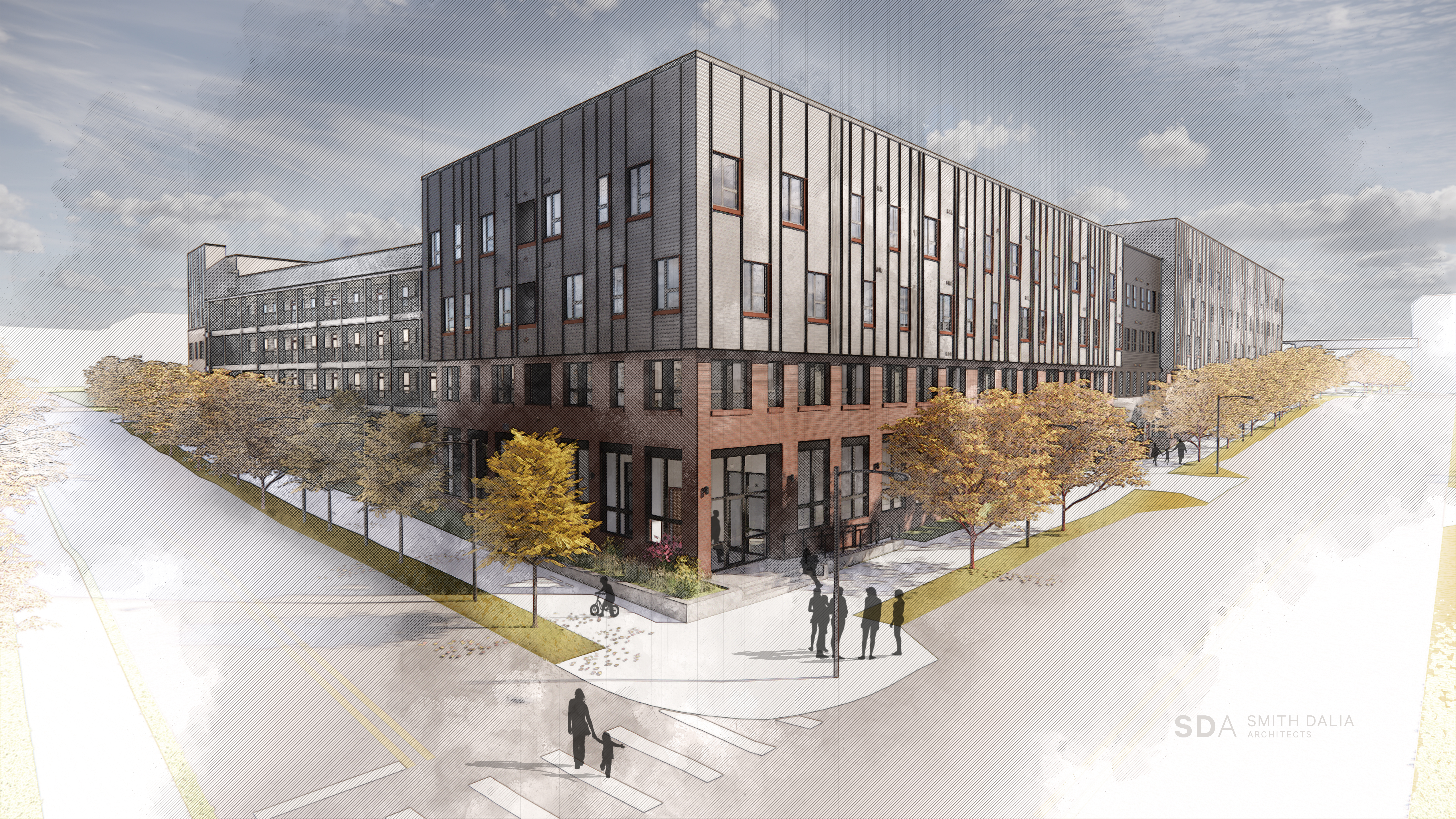News & Views
Project Spotlight: McAuley Station with St. Joseph’s Health System

By Amon Martin, Regional Vice President
Construction on Pennrose’s newest Atlanta-area health care and affordable housing development, McAuley Station, is underway! The comprehensive McAuley Park master planned community will bring high-quality, affordable housing to Saint Joseph’s Health System’s (Mercy Care) campus in the Sweet Auburn district. During a time where there is a severe housing affordability crisis in Georgia, the partnership will add much needed mixed-income housing and improve access to care for Atlanta’s most vulnerable families.
We’re speaking with Amon Martin, regional vice president at Pennrose, to learn more about this exciting partnership and the impact it will have on the local community.
First, could you provide background on the project?
McAuley Station is a collaboration with Saint Joseph’s Health System (Mercy Care) and Pennrose. Mercy Care recognizes that safe, stable housing is critical to positive health outcomes. As part of their vision for the site, they wanted to renovate and expand their clinic to serve 3,000 more patients a year and develop the four acres of adjacent, underutilized land to address housing instability in the area.
Located at 375 Gartrell Street SE, the first phase will deliver 170 affordable and workforce housing apartments, 315 parking spaces, and includes the recently completed 36,000-square-foot expansion of Mercy Care’s clinic space to better serve Atlanta’s low-income population.
We are also hard at work preparing for the second phase of the development, which includes affordable, independent living for seniors. Once complete, the multi-phase McAuley Park master plan will add 270 affordable family, senior, and workforce units with direct access to Mercy Care’s medical services. The brand new community also offers a host of on-site amenities and is located a block away from the MLK MARTA station and within minutes from Atlanta’s BeltLine, providing residents with easy access to transportation and job centers located downtown.
Can you tell us more about the benefits of pairing health care and housing together?
Access to health care in underserved communities is a huge challenge. The ability to offer affordable housing adjacent to the full gamut of Mercy Care’s services will break down barriers, offering easy access to medical, dental, physiatry, and behavioral health services to those who are uninsured or unable to pay. Plus, having access to on-site supportive services and preventative measures, such as a healthy food programs, will help address pressing social determinants of health.
Another interesting aspect of this project is it’s not just traditional affordable housing. Ten of the units are being master leased to Mercy Care for patients that are homeless and in need of transitional, respite housing and another 30 units will be permanent supportive housing through Fulton County’s Behavioral Health Department.
The bottom line is that when individuals have access to safe, high-quality, and affordable housing, positive health outcomes increase and costs for local health care systems are reduced.
We have talked a lot about affordable housing, but could you tell us more about the benefits of workforce housing?
With inflation, increased interest rates, and the rising cost of home values in Atlanta and across the country, many workers are unfortunately being priced out of the areas where they live. Mercy Care and the City of Atlanta really wanted address this issue and take advantage of income averaging in the LIHTC transaction, which allows developers to serve households earning up to 80% of the area median income (AMI), as long as the average income limit remains at 60% AMI or less.
This strategy allowed the team to reach up and target the “missing middle,” which is often teachers, police officers, city employees, and others who are making more than 60% area median income (AMI) but cannot afford market-rate rents, while also providing more extremely low-income units at 30% AMI. The project will have homes for a wide range of households, with 30 units at 30% AMI, 101 at 60% and 29 workforce units.
What else is contributing to the success of this development?
I really want to highlight what a critical role partnership and collaboration played in getting this development off the ground. We had tremendous support from Invest Atlanta, Truist Bank, Trinity Health Care, Partners for Home, and Saint Joseph’s. The Georgia Department of Community Affairs also really believed in the project, allocating not only LIHTCs but also National Housing Trust and HOME Loan Funds.
It took a village, and we are proud to help execute Mercy Care’s vision. Having access to affordable housing, health care, transit, amenities, and green space will positively impact the lives of residents for years to come.
Phase I of the McAuley Station development is slated for completion in Spring 2024. For project updates, stay tuned to the Pennrose News section or follow us on Twitter, LinkedIn, and Facebook.